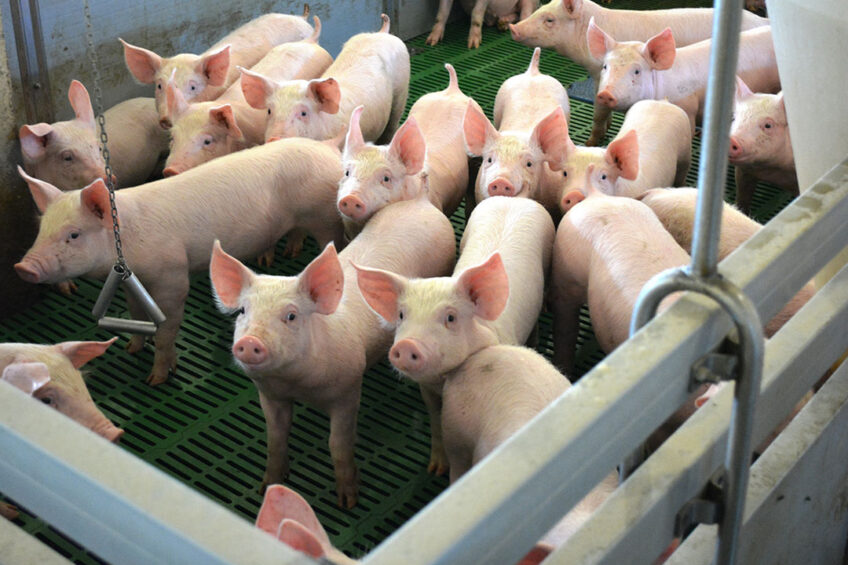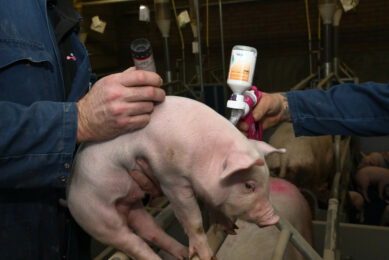Stress in finisher pigs? Lithium additives may help

After several years of study, Russian scientists have designed feed additives based on lithium. This may help control stress in finisher pigs.
Developing lithium-based feed additives has taken years of study by scientists from the All-Russia Research and Development Institute of Livestock Physiology, Biochemistry, and Feeding in the Kaluga region of Russia. Konstantin Ostrenko, head of the institute’s laboratory of immunobiotechnology and microbiology, explained that in 2020, lithium ascorbate successfully passed its ultimate field trials at Tomsky pig farm, operated by Russian pork producer Sibagro. As both efficiency and safety have been confirmed, lithium ascorbate is being registered as a feed additive in Russia, says Ostrenko.
Depressed pigs
For a long time, the scientists in the Kaluga region, southwest of Moscow, have known that modern industrial pig farms with noisy, heavy machines make pigs much more prone to depression than they were a few decades ago. Pigs can get also depressed because of other reasons, such as transfer from one group to another or changes in diet or weaning. Just as in humans, mental problems in some pigs lead to weight loss, while others tend to accumulate more subcutaneous fat. As a result, farmers get less profit, without knowing what is causing the problems.
Lithium ascorbate in finishing pigs
A 2019 study showed that stressors arising in the course of a standard pig production cycle strengthen activity of the biologically active centres in pigs, depending on individual levels of general reactivity. The scientists also reported that experimental data on the complex of endocrinological and biochemical parameters, among other things, indicated that lithium ascorbate has a positive effect on antioxidant status in finishing pigs.
Interest
Several Russian companies have already expressed interest in curbing stress and improving animal welfare. “Nowadays, in the context of intensive pig farming, the manifestation of stress on farms is not a rare thing. Animals react to any, even minor changes in farm conditions, especially in spring and autumn. Metabolism changes and immunity decreases, the percentage of necrosis and cannibalism increases, and a decrease in productivity is seen,” said Lyubov Gordeeva, chief livestock specialist of the Russian major pork producer Agropromkomplektatsiya Group. Gordeeva added that the company had already introduced some components of anti-stress therapy at its farms and is interested in a specially developed anti-stress drug.











